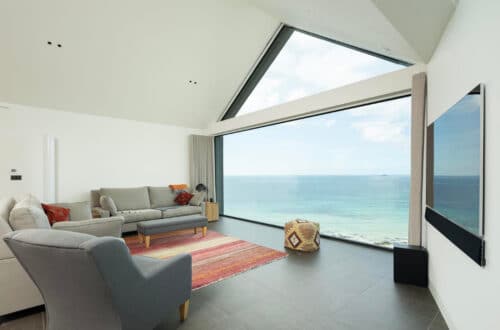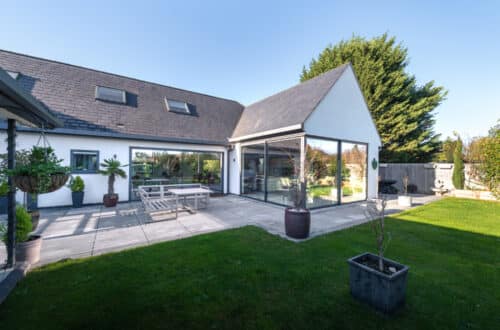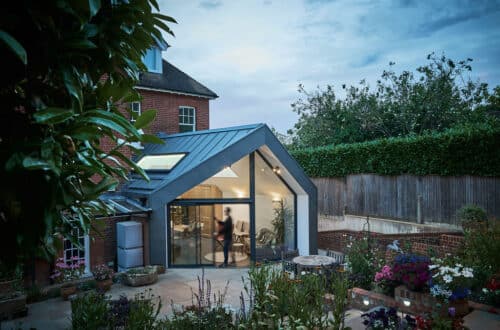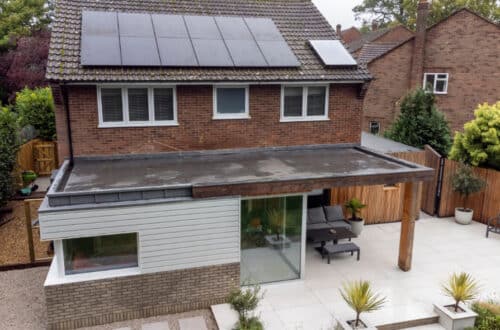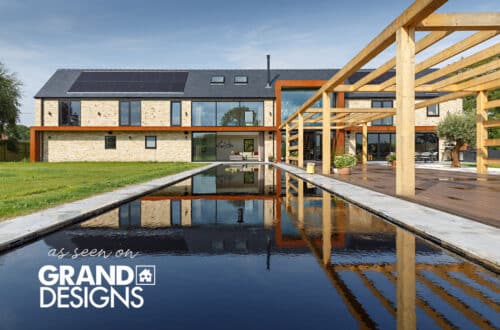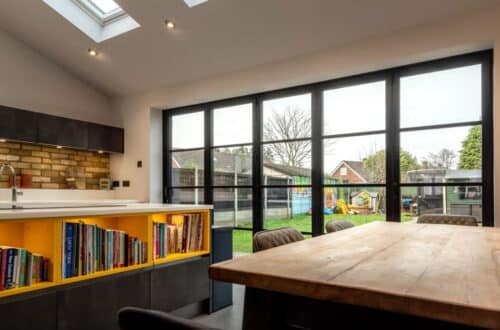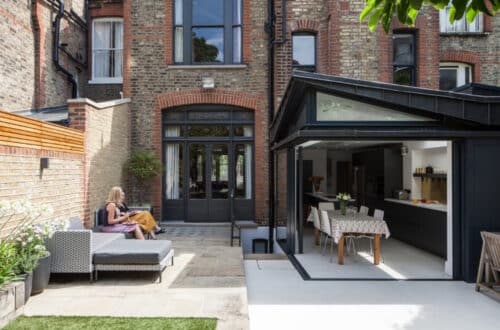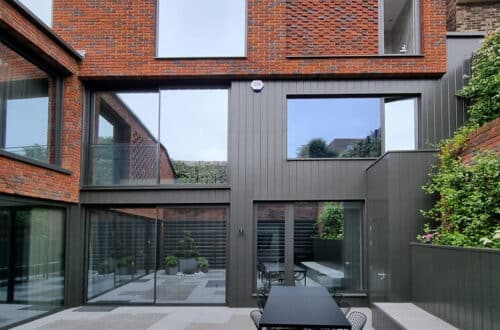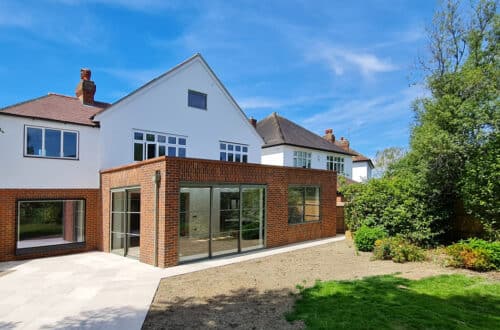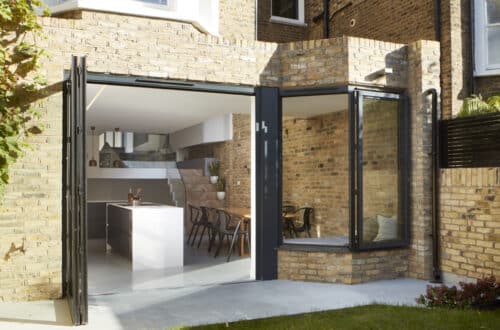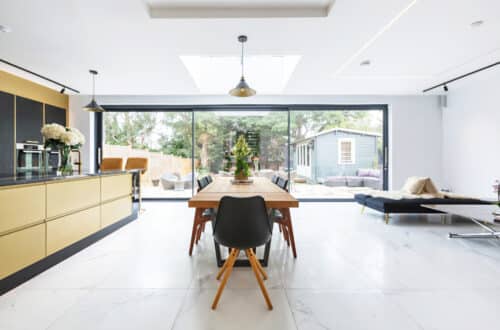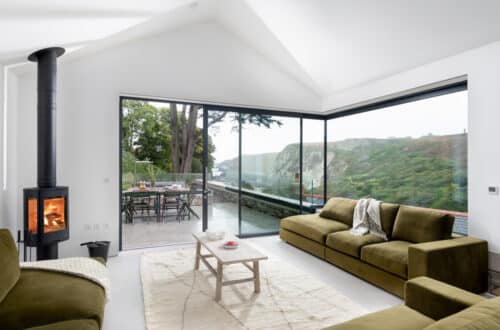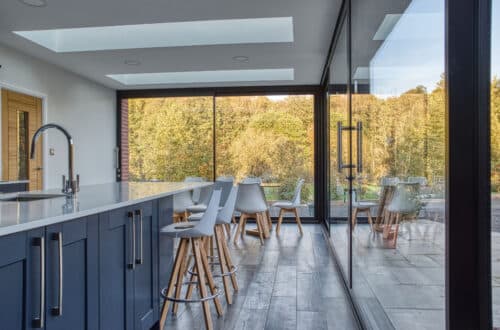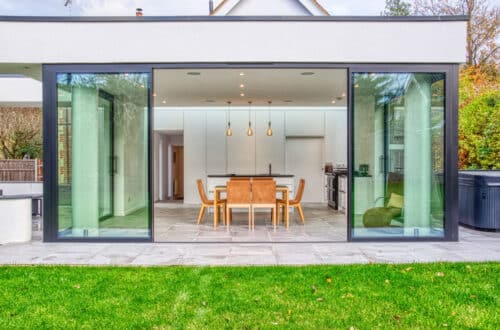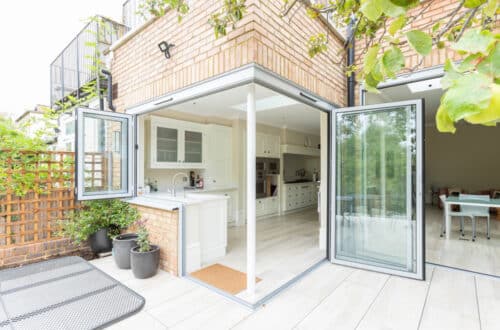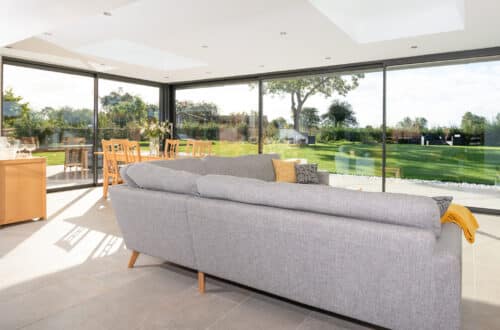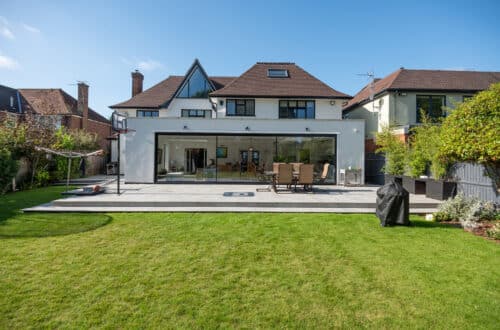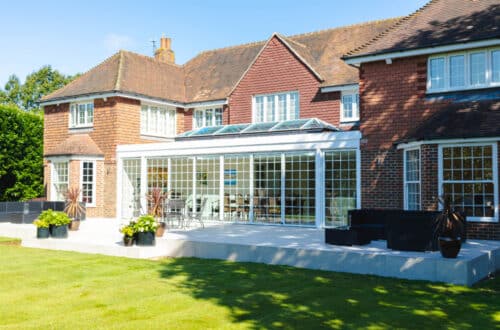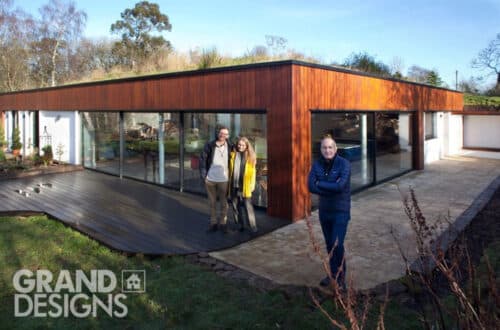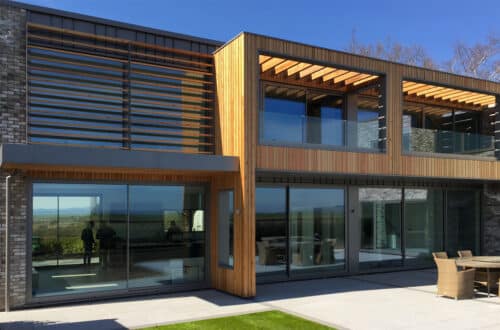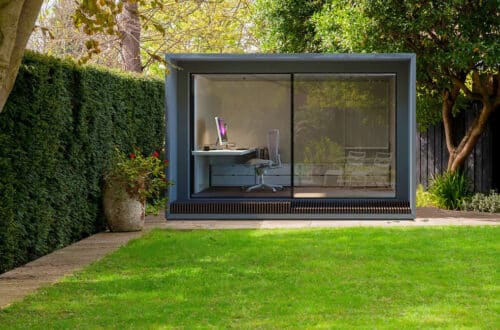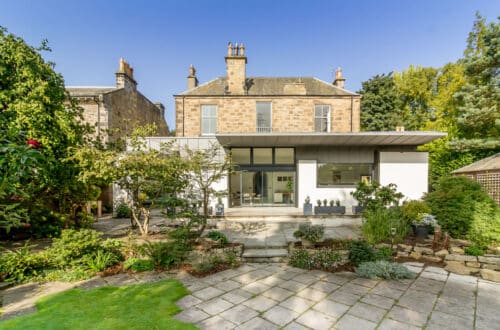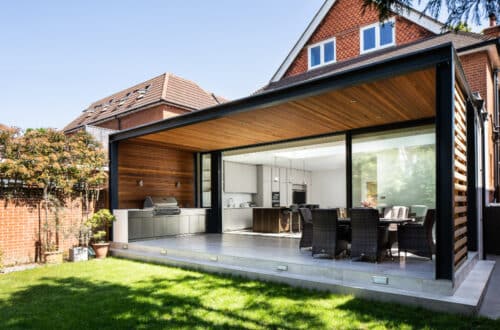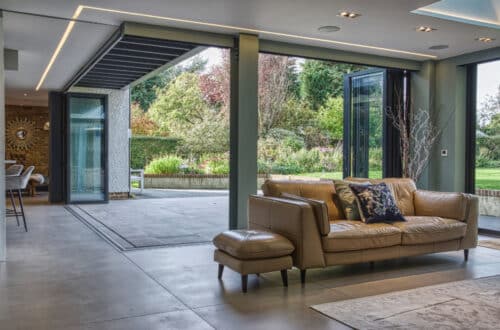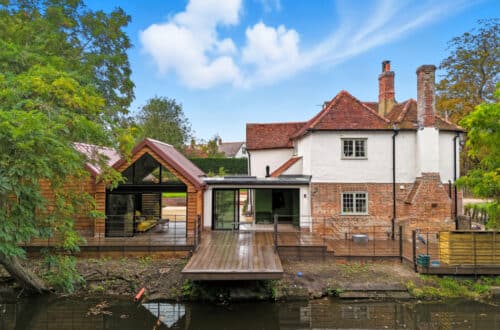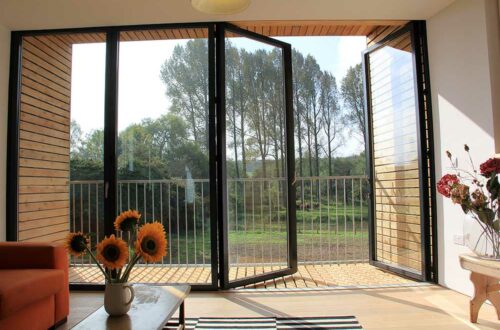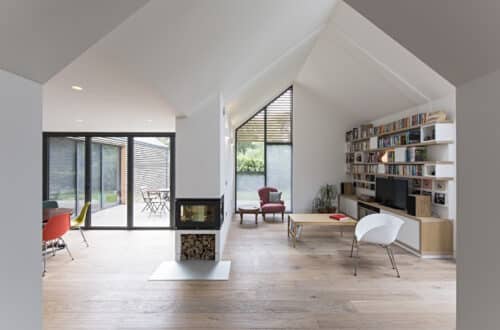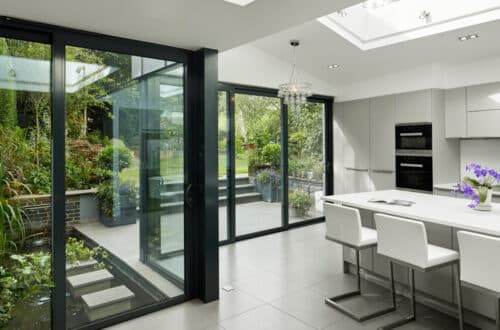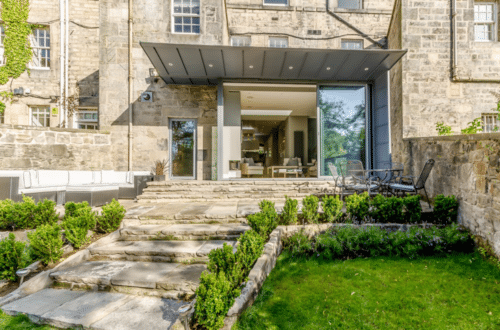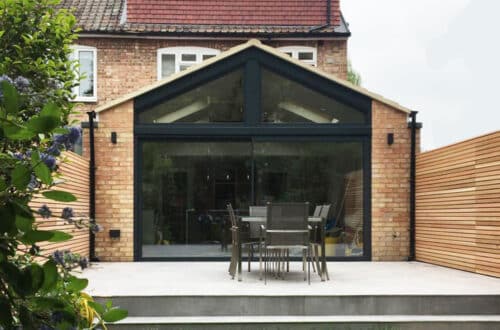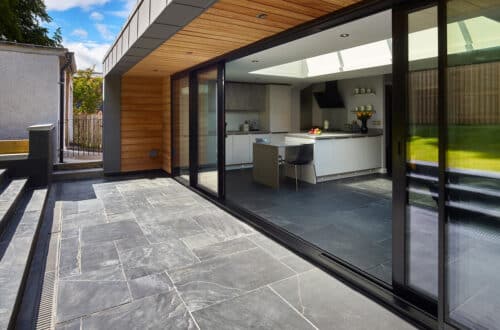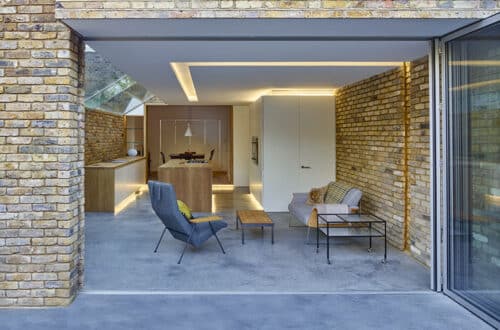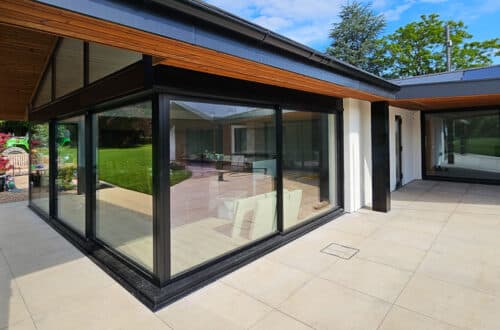Structurally bonded glass – know the risks when choosing a sliding door
Help & Advice: Structurally bonded glass – know the risks when choosing a sliding door
Structurally bonded glass – know the risks when choosing a sliding door
What is a structurally bonded sliding door?
A ‘structurally bonded sliding door’ has the glass glued/bonded to the door frame all round for a permanent bond. The door and glass become one item, glass is no longer a serviceable item without a new door panel as well.
How do I know if I am buying a structurally bonded sliding door?
You will need to ask your door supplier directly. Not many door companies will offer this information upfront or go through the extra risks.
What are the benefits of a structurally bonded sliding door?
Using the strength of the glass a structurally bonded door can be very slim, usually providing a slim look all round, top bottom and sides.
What are the risks of buying a structurally bonded sliding door?
- If there is an accident with the glass on a structurally bonded door, then the glass alone cannot be replaced. It has to be a new sliding door panel as well. Along with the additional cost, you have to buy this from the window/door company you have purchased this from initially to order this. If this was not a structurally bonded sliding door then you can get any window or door company to replace the glass.
- If glass is replaced under guarantee, you get a new door panel under guarantee. This will go alongside your older door panels and there could be a difference in colour.
- If you need to replace or upgrade the glass in the future for whatever reason you are reliant on ordering it through the door company that supplied these, they are reliant on ordering it from the same manufacturer who are reliant on ordering it from the same profile supplier. If one of these parties are no longer trading, hopefully something can still be arranged to prevent a complete new set of doors.
- To use a car analogy, it is like a cars tyre, wheel and braking system being made as one item. If the tyre needs replacing, then so does everything else.
What happens if my glass breaks on a bonded door?
- You would need to replace the whole door, not just the glass. You have to go back to the company that supplied these doors
What happens if I need to replace or upgrade the glass but that door is no longer available?
A complete new set of doors is required and potentially new plaster, new render, floors may have to come up.
What are the alternatives to a ‘structurally bonded’ sliding door?
- ‘Dry glazed’ or semi-dry glazed sliding doors. These allow the glass to be replaced in the future without having to replace the whole door panel. Dry glazed systems usually have slightly chunkier frames to accommodate the glazing bead.
- A semi-dry glazed door is usually the best of both worlds. A predominantly slim system with the benefit of being serviceable in the future. There are 20mm slim sliding doors that are not structurally bonded including the SUNFLEX UK SVG20 system.
Become an accredited distributor
If you are in the glazing trade join our distributor programme today and you’ll receive discounts on select showroom models, the choice of over 40 products for your inventory, and training and technical support directly from SUNFLEX UK.
Join
